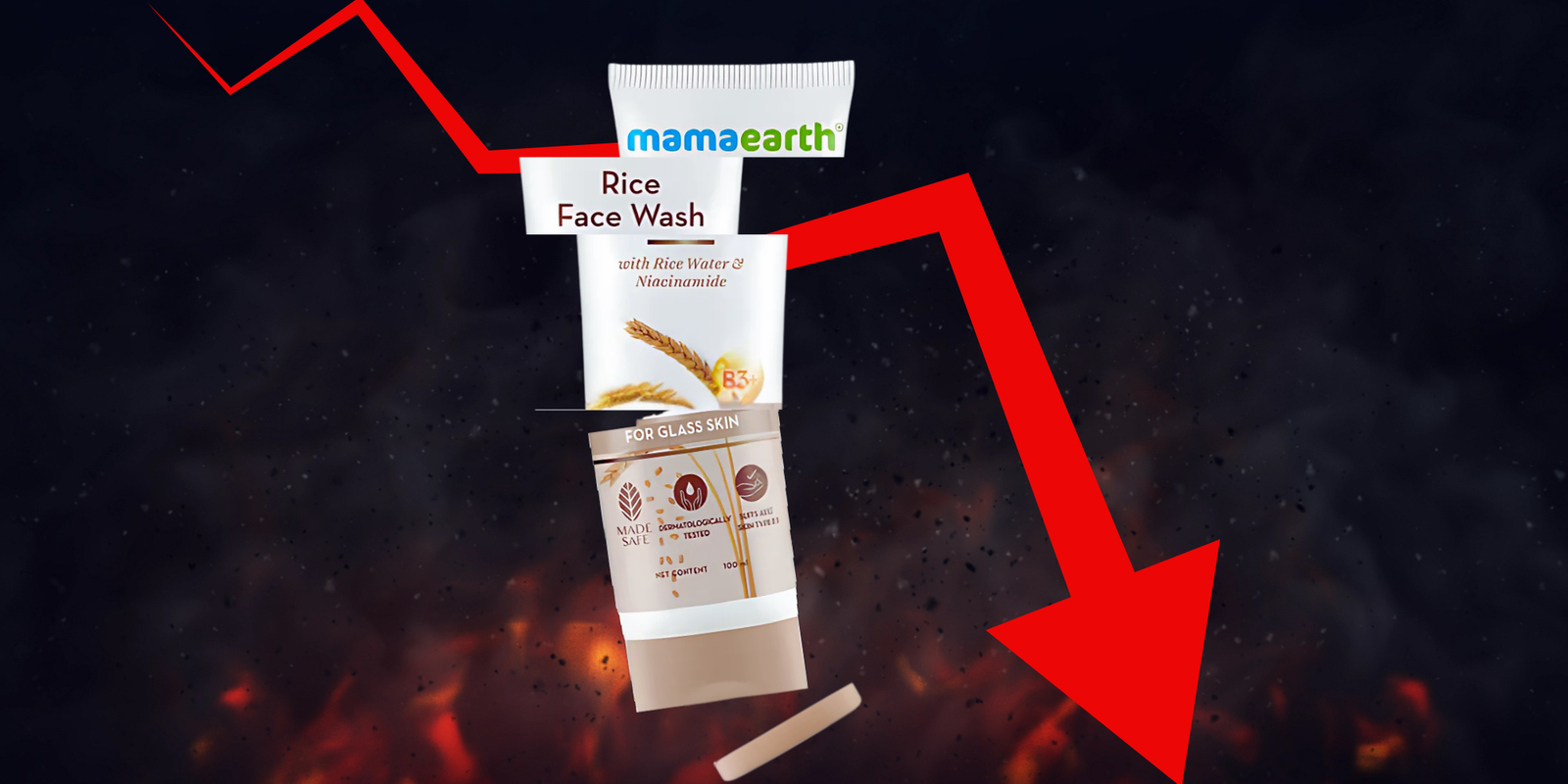[ad_1]
Mamaearth, once a trailblazer in India’s beauty and personal care sector, has recently faced significant challenges, culminating in a ₹19 crore loss in the September 2024 quarter—a stark contrast to the ₹40 crore profit reported in the previous quarter.
This downturn has been attributed to the company’s transition to a direct-to-consumer distribution model as part of its Project ‘Neev’, which has necessitated inventory corrections.
The Digital Dawn and Subsequent Expansion
Founded with a digital-first approach, Mamaearth capitalised on e-commerce platforms like Amazon and Flipkart, catering to the growing online consumer base in India. This direct-to-consumer (D2C) strategy allowed the brand to build a strong online presence without the overheads associated with traditional retail. However, as the online beauty market became increasingly saturated, Mamaearth sought growth by venturing into offline retail.
By 2024, approximately 35% of Mamaearth’s sales were generated through physical stores. While this expansion broadened their market reach, it introduced complexities inherent to offline retail, such as logistics, inventory management, and distributor relationships.
Distribution Dilemmas and Inventory Woes
Initially, Mamaearth partnered with super-stockists—large distributors responsible for supplying products to smaller retailers nationwide. This model facilitated rapid market penetration but limited the company’s visibility into real-time sales data, leading to overstocking and unsold inventory. Reports from the All India Consumer Products Distributors Federation highlighted that over 2,000 distributors were burdened with substantial unsold stock, including products nearing expiration.
In response, Mamaearth launched “Project Neev,” aiming to replace super-stockists with direct distributors in major cities to gain better control over inventory and sales data. However, the transition faced hurdles, resulting in further inventory accumulation and a significant write-off of ₹63 crore worth of expired products. This substantial write-off not only impacted finances but also underscored issues in demand forecasting and inventory management.
Product Proliferation and Marketing Expenditure
In 2022, Mamaearth introduced 122 new products, doubling the industry average. While innovation is vital, such rapid expansion can strain resources and complicate inventory management. The company’s CEO, Varun Alagh, acknowledged the need to focus on core “hero” products to streamline operations and meet consumer demand more effectively.
Marketing expenses have also been a point of contention. Allocating between 35% to 42% of revenue to marketing—higher than the industry average—has raised sustainability concerns. While digital campaigns and influencer partnerships have bolstered online sales, their effectiveness in driving offline sales remains questionable, as in-store purchasing decisions are often influenced by shelf visibility and staff recommendations rather than online promotions.
Shifting Consumer Sentiments and Market Dynamics
The beauty industry is experiencing a paradigm shift, with consumers gravitating toward brands that emphasise sustainability, transparency, and ethical practices. Emerging competitors are leveraging these trends, offering products that resonate with the evolving preferences of the modern consumer. Mamaearth’s recent challenges, including inventory issues and financial setbacks, may have affected its brand perception, prompting consumers to explore alternative options.
The Path Forward
To navigate these turbulent waters, Mamaearth must recalibrate its strategy by:
- Focusing on Core Products: Prioritising best-selling items can streamline operations and improve inventory management.
- Enhancing Inventory Systems: Implementing advanced demand forecasting tools and real-time inventory tracking can reduce overstocking and minimise write-offs.
- Adapting Marketing Strategies: Aligning marketing efforts with both online and offline consumer behaviours will ensure a cohesive brand message across all channels.
- Embracing Sustainability: Aligning with consumer values by adopting sustainable practices can rebuild trust and loyalty.
[ad_2]
Source link





